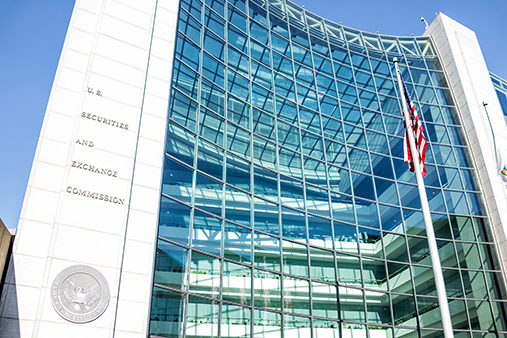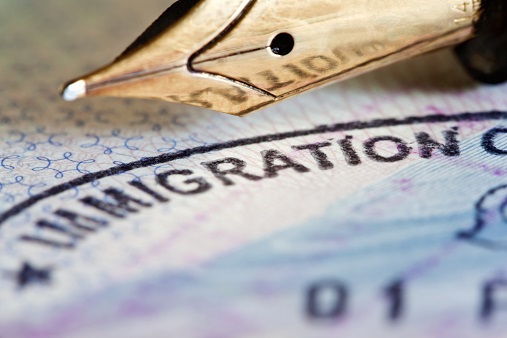The Food and Drug Administration (FDA) recently published its final rule on foreign supplier verification program (FSVP), which is being implemented pursuant to the Food Safety Modernization Act. According to the summary section of the 500-page rule, the FSVP regulation focuses on known or reasonably foreseeable food safety hazards, identified and considered through a hazard analysis and evaluation process, rather than all adulteration covered by the adulteration provisions in the Food, Drug & Cosmetic Act (FDCA).
Under the final rule, importers are responsible for the following:
- Determining the hazards reasonably likely to cause illness or injury with each food. Importers can conduct their own analysis of the potential hazards with a food or review and assess a hazard analysis conducted by another entity.
- Evaluating the risk posed by a food, using the results of the hazard analysis, and evaluating the foreign supplier’s performance. This evaluation informs the approval of foreign suppliers and the determination of appropriate supplier verification activities. An importer may rely on another entity to conduct this evaluation and to determine the appropriate supplier verification activities as long as the importer reviews and assesses the evaluation, determination, or both, as applicable. An importer must approve its own foreign suppliers.
- Conducting supplier verification activities. In general, importers must establish and follow written procedures to ensure they only import foods from foreign suppliers they have approved importers may, however, import food from unapproved foreign suppliers, on a temporary basis when necessary and appropriate, if they subject the food from these suppliers to adequate verification activities before importing it.
- Importers are responsible for determining and documenting foreign supplier verification activities (as well as the frequency with which those activities must be conducted) that are appropriate to provide assurance that hazards requiring a control in food are significantly minimized or prevented. Importers must conduct supplier verification activities for each foreign supplier before importing a food into the United States and periodically thereafter. An importer may determine, document, and conduct these activities itself or may rely on other entities to perform those tasks, as long as the importer reviews and assesses the relevant documentation, including the results of supplier verification activities.
- The appropriate verification activities and their frequency will vary depending on the food, the foreign supplier, and the nature of the control. Appropriate verification activities include: onsite auditing, sampling and testing of a food, review of the foreign supplier’s relevant food safety records, and other activities that are appropriate based on the evaluation of the risk posed by the food and foreign supplier performance.
- When a hazard in a food will be controlled by the foreign supplier and is one for which there is a reasonable probability that exposure to the hazard will result in serious adverse health consequences or death to humans or animals, the default appropriate verification activity under the regulation is an annual onsite audit of the foreign supplier. To provide flexibility even in these circumstances, the rule allows for the performance of a different supplier verification activity and/or less frequent onsite auditing provided an adequate written determination is made that the other approach will meet the public health purpose of supplier verification.
- Performing appropriate activities in other circumstances. The final rule also adds flexibility and recognizes the reality of modern distribution chains by not requiring an importer to conduct supplier verification (or evaluate the risk posed by a food and the foreign supplier’s performance) when the hazard requiring a control in a food will be controlled by a subsequent entity in the distribution chain in the United States. For example, if an importer’s customer will control the hazard, the importer can rely on its customer to provide written assurance that the food will be processed for food safety and must disclose that the food has not been processed to control the identified hazard. If the hazard will be controlled by a subsequent entity in the distribution chain, the final rule requires disclosure that the food has not been processed to control the identified hazard as well as a series of written assurances starting with assurances from the customer to the importer and continuing the obligation to provide written assurance of processing for food safety throughout the distribution chain. The final rule provides flexibility for an importer to establish, document, and implement an alternative system that ensures adequate control, at a later distribution step, of the hazards in a food product distributed by a manufacturing/processing facility.
- Conducting corrective actions. An importer must take appropriate corrective actions promptly if it determines that a foreign supplier of a food it imports does not produce the food in compliance with the processes and procedures that provide the same level of public health protection as those required under section 418 or 419 of the FDCA, if either is applicable, or produces food that is adulterated under section 402 or misbranded under section 403(w) (if applicable) of the FDCA. This determination could be based on a review of consumer, customer, or other complaints related to food safety, verification activities, or other information. The appropriate corrective actions will depend on the circumstances but could include discontinuing use of the foreign supplier until the problem is resolved.
- Identifying themselves as the importer of the food for each line of food product offered for importation into the United States.
- Retaining records of FSVP activities.
Modified Provisions for Certain Types of Importers
The final rule provides several exceptions to the standard FSVP requirements for certain types of importers.
First, for dietary supplements and dietary supplement components, importers who establish and verify compliance with certain specifications (concerning dietary supplement components and packaging) under the dietary supplement CGMP regulations will not be required to comply with most of the standard FSVP requirements, including hazard analysis and standard supplier verification activities. The same exception would apply to importers whose customer is required to establish such specifications and verify that they are met, except that the importer would have to obtain written assurance that its customer is complying with those requirements. In contrast, importers of other dietary supplements would be required to comply with most of the standard FSVP requirements but would not have to conduct hazard analyses, and their supplier verification activities would focus on verifying that the supplier is in compliance with the dietary supplement CGMP regulation, rather than verifying that hazards requiring a control are significantly minimized or prevented, as required under the standard supplier verification activity provisions.
Second, the rule establishes modified FSVP requirements for very small importers and importers of food from certain small foreign suppliers. The final rule aligns the definition of “very small importer” with the definitions of “very small business” under the regulations on preventive controls for human food and animal food. For the importation of human food, the definition of very small importer has an annual sales ceiling of $1,000,000, which is consistent with the $1,000,000 annual sales ceiling for a very small business under the preventive controls for human food regulation. For the importation of animal food, the definition of very small importer has an annual sales ceiling of $2,500,000, which is consistent with the $2,500,000 annual sales ceiling for a very small business under the preventive controls for animal food regulation.
In addition, food from three types of small foreign suppliers is not subject to standard supplier verification requirements. Those foreign suppliers are: (1) qualified facilities under either of the preventive controls regulations, (2) farms that are not “covered farms” under the produce safety regulation in part 112 (21 CFR part 112) in accordance with § 112.4(a), or in accordance with §§ 112.4(b) and 112.5, and (3) shell egg producers not subject to part 118 (21 CFR part 118) because the shell egg producer has fewer than 3,000 laying hens. Each of these types of producers is either exempt from their underlying FDA food safety regulations or subject to modified requirements, mostly, and in some cases entirely, because of the size of these producers.
Third, the rule excludes from most of the standard FSVP requirements (including hazard analysis and verification that identified hazards are significantly minimized or prevented) certain types of food from a foreign supplier in a country whose food safety system FDA has officially recognized as comparable or determined to be equivalent to that of the United States, provided that:
- The food is within the scope of the relevant official recognition or equivalency determination;
- The importer determines that the foreign supplier of the food is in good compliance standing with the relevant food safety authority; and
- The food is not intended for further processing in the United States, e.g., packaged food products and raw agricultural commodities (RACs) that will not be processed further before consumption.
Although FSVP requirements apply to most imported food under FDA’s regulatory jurisdiction, certain categories of imported food are not covered under the FSVP regulation. These exemptions include certain juice, fish, and fishery products (which are already subject to verification under FDA’s hazard analysis and critical control point (HACCP) regulations for those products), food for research or evaluation, food for personal consumption, alcoholic beverages, food that is transshipped, food imported for processing and future export, food exported from and returned to the United States without manufacturing/processing in a foreign country, and certain meat, poultry, and egg products regulated by the USDA.
A copy of the final rule can be found here.
For more information, contact the Barnes & Thornburg attorney with whom you work or Lynn Tyler at (317) 231-7392 or lynn.tyler@btlaw.com or Alicia Raines at 317-231-7398 or alicia.raines@btlaw.com.
Visit us online at www.btlaw.com/food-drug-and-device-law-practices.
© 2015 Barnes & Thornburg LLP. All Rights Reserved. This page, and all information on it, is proprietary and the property of Barnes & Thornburg LLP. It may not be reproduced, in any form, without the express written consent of Barnes & Thornburg LLP.
This Barnes & Thornburg LLP publication should not be construed as legal advice or legal opinion on any specific facts or circumstances. The contents are intended for general informational purposes only, and you are urged to consult your own lawyer on any specific legal questions you may have concerning your situation.
Visit us online at www.btlaw.com and follow us on Twitter @BTLawNews.










/Passle/6488d4630e7e25c9ac9f834a/SearchServiceImages/2024-08-22-21-09-42-814-66c7a9167c25ae3ecd362787.jpg)

/Passle/6488d4630e7e25c9ac9f834a/SearchServiceImages/2024-08-21-16-53-04-583-66c61b702c11c56cda8987a4.jpg)
